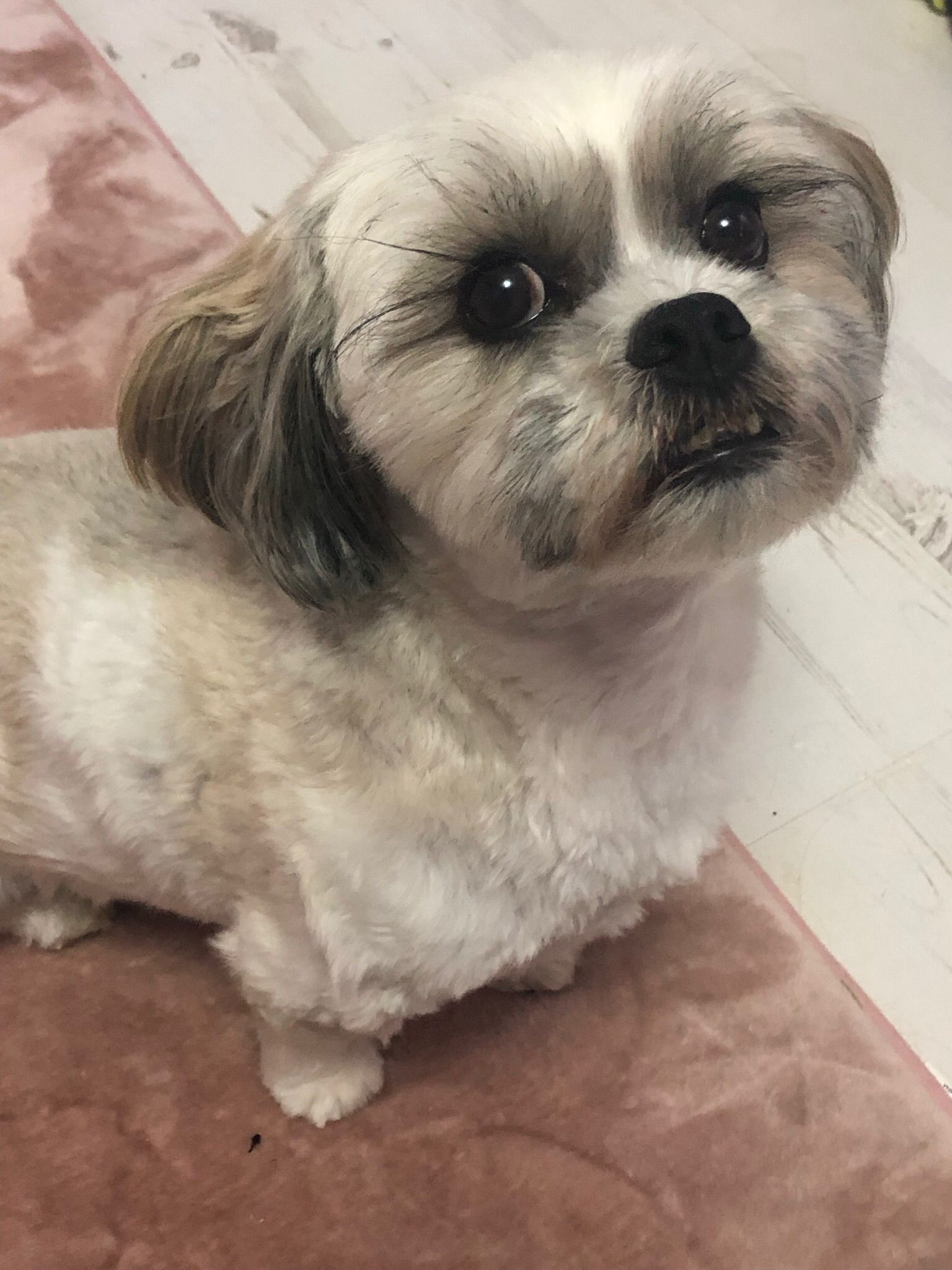The energetic and confident Lhasa Apso tends not to be an aggressive dog, although their assertive nature is sometimes confused for aggression.
That said, it is crucial not to underestimate the importance of training and socialization in this small dog.
The Lhasa Apso Temperament
The Lhasa Apso originates in Tibet, where they served as palace and monastery watchdogs.
Although no longer used as watchdogs, the Lhasa Apso has not lost its keen eye and alert bark.
What this dog loves most, though, is spending time with family.
A faithful companion breed, the Lhasa Apso is an intelligent dog that is great for active owners and adaptable to any living situation.
The Lhasa Apso is not trusting of strangers and can be fiercely protective when needed.
Are Lhasa Apso Dogs Aggressive?
The Lhasa Apso sometimes gets labeled as aggressive but often out of poor judgment.
Yes, the Lhasa Apso is a dog that can bite, but most of the time, they do so because of circumstances.
Fear
Fear is a common cause of dog bites in many breeds. Examples of situations where a Lhasa Apso may feel fear and bite include
- If they are hurt.
- If they get backed into a corner.
- If a stranger is trying to approach them
Biting due to fear may or may not be avoidable depending on the situation and the dog, but you can do a few things to help avoid it when possible.
- Never allow strangers to approach and pet your dog.
- Always be mindful of your dog’s body language.
- Never invite people to meet your dog by approaching them head-on and reaching to pet their head. Have them stand to the side and let your dog seek contact first.
- If your dog is particularly fearful, do not put them in an unfamiliar situation or a situation that could cause them to feel uncomfortable.
- If your dog has bitten out of fear before (for example, at the vet,) be sure to muzzle them the next time you are in the same situation.
Intimidation/Threat
Feeling intimidated or threatened is another situation where a Lhasa Apso may bite – these types of cases include:
- If a giant dog is threatening them.
- If something or someone they love is being threatened.
Biting due to intimidation or threat can usually be avoided by being more mindful of your surroundings and how they might influence your dog.
For example, is the dog park full of giant breed dogs that will intimidate your pup?
Watch your dog’s body language. What are they telling you?
Fluke Situation
Occasionally a fluke situation will arise that causes a Lhasa Apso to bite. These types of cases include:
- A child falling on them.
Fluke incidents are sometimes avoidable, but other times, it is unavoidable.
You can lessen the chances of these situations by always being mindful of where your dog is and ensuring they do not get left alone with children, unfamiliar people, or animals without a proper introduction.
Behavioral Concerns With Lhasa Apso Dogs
Another common problem that can lead to biting is when a Lhasa Apso has behavioral concerns. Examples of this type of situation include:
- A dog is allowed to do anything they want without any guidance.
Biting due to behavioral concerns is preventable.
- Firstly, begin by teaching your puppy early that biting is not acceptable.
- Secondly, do your research if you are adopting an adult dog. Make sure your new dog has been temperament tested, and if your dog has had problems with behavior in the past, bring a trainer in immediately.
- Thirdly, if your dog bites for the first time, find out why. If they are not sick and the incident wasn’t a fluke, consult a trainer immediately to nip the issue in the bud.
- Lastly, never leave children and dogs alone.
Poor Socialization
Poor socialization can also lead to biting incidents. Examples of biting due to poor socialization include:
- A dog that has lived in a hoarding situation.
- A dog that has never met other dogs or people.
Biting due to poor socialization can be avoided by working with your dog early in life to introduce them to animals and people.
Introduce your dog to as many diverse groups as possible—for example, different races, different species, different ages, and different abilities.
The more diversity you expose your dog to, the less chance your Lhasa will be poorly socialized.
If you adopt a dog with no previous socialization, it is best to consult a professional trainer who can help you and your dog through socialization training.
The Importance of Training
Training is an integral part of your relationship with your dog and something you should begin as soon as possible and carry on throughout your lifetime.
When you train your dog, you are not only teaching them what you expect of them, but you are providing them with a blueprint that they can reference in the future.
So, if you allow your dog to bite you (even as a puppy) and do not correct them, you add to that blueprint.
When you later want to change your dog’s behavior, you create confusion by changing the existing blueprint – this is also the importance of consistency in training!
Check out this amazing house training method that can completely re-shape your dog’s behavior… for the better.
Conclusion / Summary
The Lhasa Apso is often labeled unfairly as an aggressive dog, but this is not usually the case.
Most of the time, when a Lhasa Apso bites, it is due to circumstances that could have been avoided altogether!

